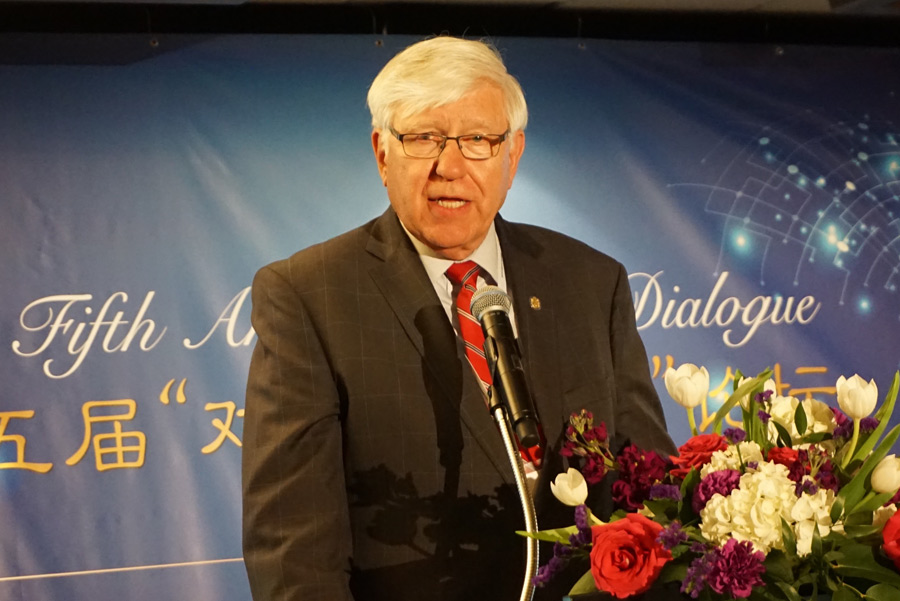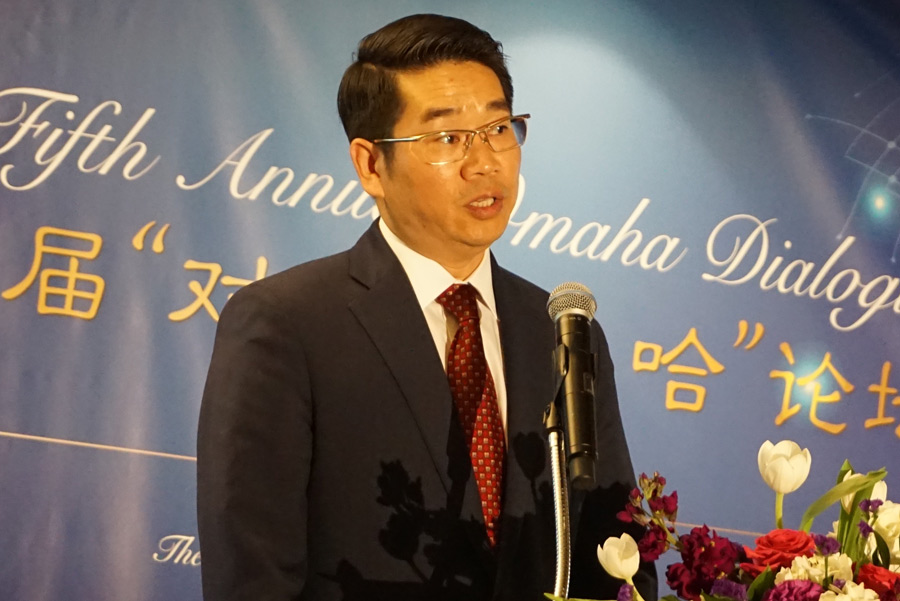In Omaha, a call for dialogue over disputes

As tens of thousands flocked to Omaha to attend Berkshire Hathaway's annual shareholders meeting and listen to Warren Buffett talk about investing, businesspeople from China and the US met at the Fifth Omaha Dialogue to discuss the ongoing trade friction between the two countries.
"We hope to promote the exchange of investment between Chinese and American businesspeople through the dialogue. Despite the tension between the two governments, many Chinese still came to gain experience and to learn. The desire for people-to-people exchange is going strong," Zhao Jing, CEO of ChinaWise Group, one of the event organizers, said on Friday.
The weekend Berkshire meeting drew many Chinese, as Berkshire Chairman and CEO Buffett has been trying to attract more investors from China, said John Allen, chairman and CEO of Greater China Corp.
Lin Yong, CEO of Haitong International Securities Group and chairman of Haitong Bank, said that China is good at learning and has created many wonderful companies such as Tencent, Baidu and Alibaba, akin to Facebook, Google and Amazon, respectively.
Who will be China's Warren Buffett?
Which company will be China's Berkshire Hathaway?
"I want to learn how Buffett did it and watch out for such a Chinese company," said Lin.
Amid talk about stocks and investment strategies, the trade relationship kept popping up. It's no wonder: The No. 1 industry in Nebraska is agriculture, and China is its major export destination.

"The big thing we have with China is agricultural products — pork, beef and soybeans. The other component is intellectual knowledge. The University of Nebraska has a connection with the Confucius Institute. We trade students, professors and ideas," said Nebraska state Senator Robert Hilkemann, one of the keynote speakers at the summit.
Hilkemann said that he is concerned about the trade situation because he wants his state to continue doing business with China.
Hilkemann said that Nebraska Governor Pete Ricketts has talked to US President Donald Trump about the huge impact the trade dispute has had on the state's agricultural industry.
"The soybean price is struggling. So much of our economy is reliant on agriculture. We are aware that we need to have a wonderful trade relationship with China. I think we got a lot more in common than differences. I'm hopeful we can overcome the differences," Hilkemann said.

Another keynote speaker, Wei Zhenglin, counselor at the Chinese Embassy to the US in Washington, said that such sentiment is widely shared among both government officials and businesspeople in Nebraska.
When it comes to agricultural products, the US enjoys a trade surplus with China, said Wei, adding that about 40 percent of all US soybeans were shipped to China, Wei said.
"I have spent three days here. I have met with farmer organizations and political leaders including Governor Pete Ricketts. They all indicated that they don't like to see what's happening right now. They consider a trade relationship with China benefits both. To solve the trade issue, just make the cake bigger instead of cutting the other one's piece smaller," Wei said.
In Wei's view, the conflict is due to the current US administration's lack of understanding of China-US trade and its history. Wei said the exports "improved the quality of life of Americans. The trade (deficit) number is not the only thing to look at when assessing the situation."
Stephen Markscheid, president of the International Financial Education Association, echoed Wei: "It's striking to me that there are enormous amounts of expertise and understanding in the administration, but the individuals possessing that knowledge are not being listened to. Expertise is downgraded, and ideology is exalted," he said.
The large presence of Chinese at the event shows their confidence in US-China cooperation.
"It means dialogue is better than fighting," Wei said.































